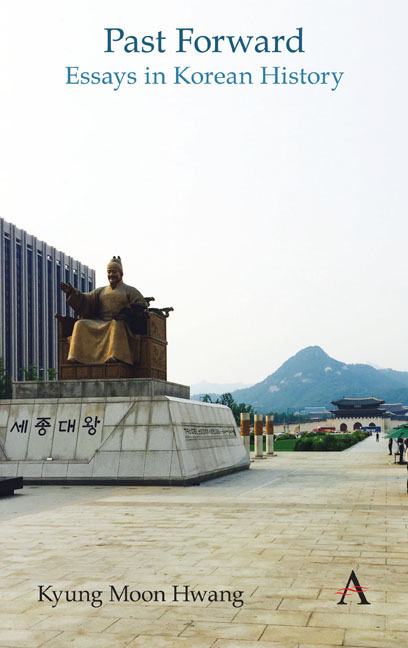Book contents
- Frontmatter
- Contents
- List of Figures
- Foreword
- Chronologies of Korean History
- Themes
- Acknowledgments
- Note on Romanization and Spelling
- Part I Circulating History
- Part II Durable Traditions
- Part III Ancient Remains
- 16 The Beginnings of Korean History
- 17 Ancient and Present Gaya
- 18 Empress GI
- 19 Speaking of Northern Korea, not North Korea
- Part IV Dynastic Depths
- Part V Modern Origins
- Part VI Challenges of Nationhood
- Part VII History Makers
- Part VIII External Presences
- Part IX Trials of Modernization
- Part X Gripped by the Past
- Index
18 - Empress GI
from Part III - Ancient Remains
- Frontmatter
- Contents
- List of Figures
- Foreword
- Chronologies of Korean History
- Themes
- Acknowledgments
- Note on Romanization and Spelling
- Part I Circulating History
- Part II Durable Traditions
- Part III Ancient Remains
- 16 The Beginnings of Korean History
- 17 Ancient and Present Gaya
- 18 Empress GI
- 19 Speaking of Northern Korea, not North Korea
- Part IV Dynastic Depths
- Part V Modern Origins
- Part VI Challenges of Nationhood
- Part VII History Makers
- Part VIII External Presences
- Part IX Trials of Modernization
- Part X Gripped by the Past
- Index
Summary
As a fan of lavish recreations of historical settings in TV and film, I could not help but be drawn to the hit 2014 South Korean television drama, “Empress Gi” (Gi Hwanghu). This historical figure, who became the wife of the Mongol emperor in fourteenth-century China, arguably once stood as the most powerful person in the world, which was in stark contrast to her early life as an enslaved Korean sent to China as human “tribute.”
The popularity of this drama, however, clearly disturbed some people in Korea who took their history seriously, for in the name of dramatic license, the show's writers and producers concocted preposterous storylines. In the early episodes, for example, the audience was supposed to believe that the thenyoung woman could have passed herself off as a swashbuckling male leader of a group of righteous bandits.
Actually, as a girl, the person who later became Empress Gi appears to have become ensnared in the periodic roundups of Korean female slaves bound for Mongol-controlled China during the latter part of the Goryeo era (tenth–fourteenth centuries). Once in the capital (present-day Beijing), she caught the eye of the Mongol emperor and became his favored concubine, and then his queen. When her husband eventually lost interest in governing, Lady (“Empress”) Gi effectively took the throne, securing her power through the fact that her son was the crown prince.
Official Chinese and Korean histories, written by the succeeding Ming dynasty and the Joseon kingdom, respectively, portrayed her negatively and decried her abuse of power. The Korean records also detailed her intervention in Korean affairs from her perch in China and the venality of her family members, especially her brothers, in her homeland. Historians have questioned this starkly disparaging depiction of her in the official records, but the producers of the TV drama turned her into not only a complex and sympathetic figure but also a national hero in the struggles against Mongol domination. Rendering historical themes and events into nationalist allegories was certainly nothing new to the Korean entertainment industry, nor even to the Korean historical profession. But I would suggest that, in this case, the revisionism, though executed badly, might have been enlightening.
- Type
- Chapter
- Information
- Past ForwardEssays in Korean History, pp. 51 - 52Publisher: Anthem PressPrint publication year: 2019



